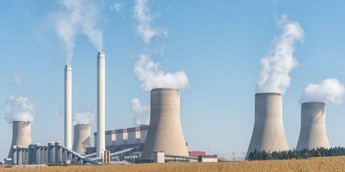Generation

Russia finally moves forward on its long-awaited nuclear deal with East Africa’s largest economy

The Kremlin and Ethiopia have inked a nuclear deal, urging the development and construction of a nuclear power plant in the East African nation. The CEO of the Ethiopian Electric Company, Ashebir Balcha, and the General Director of Russia's state-owned nuclear corporation, Rosatom, Aleksei Likhachev, finalized a strategic plan for the deal at a forum in Moscow.
The agreement includes developing a comprehensive strategy and a "road map" for the project, leading to an intergovernmental agreement. It also calls for staff training in plant operations and nuclear sector development. This deal is part of Russia's accelerated efforts to expand its presence in Africa through bilateral agreements.
Just a day prior, Niger's Mining Minister disclosed plans to construct two 2,000-megawatt nuclear reactors in collaboration with Rosatom. Additionally, Russia signed a wide-ranging cooperation agreement with Sudan to modernise the country’s transport system and explore economic ties beyond agriculture.
The plan for a nuclear plant in Ethiopia dates back to a 2017 agreement with Russia. Ethiopian Prime Minister Abiy Ahmed recently confirmed the project as part of a $30 billion infrastructure development, which also includes an oil refinery, natural gas facilities, and an airport. Ethiopia expects to construct two units operational between 2032 and 2034, each with a capacity of approximately 1,200 MW, and is also considering Smaller Modular Reactors (SMRs).
The Prime Minister stated that the nuclear power plant will be "equal to the GERD" in size, referring to the Grand Ethiopian Renaissance Dam. The GERD, which was recently inaugurated, can produce more than 5,000 megawatts of power at full capacity. Preparatory work for the nuclear plant is already underway, and it will operate exclusively for peaceful purposes.












